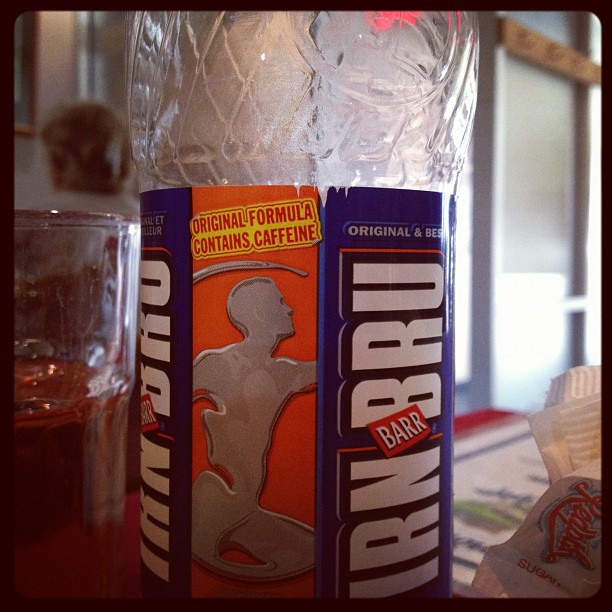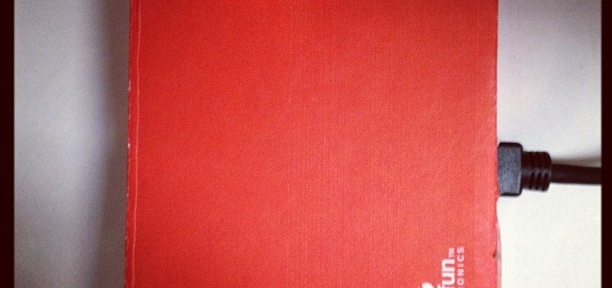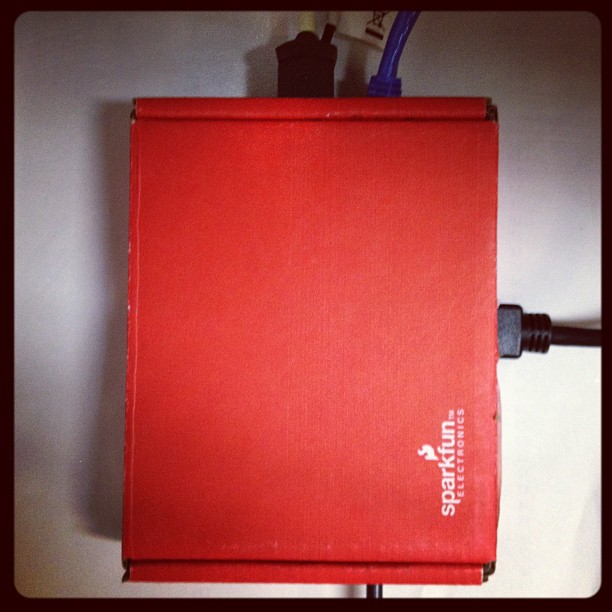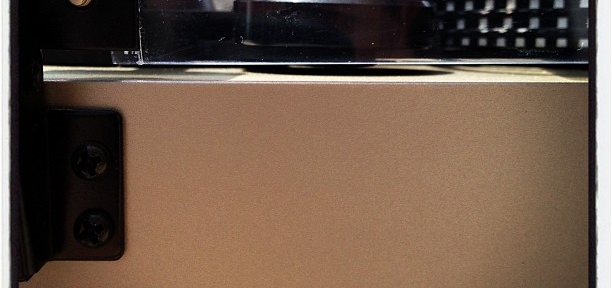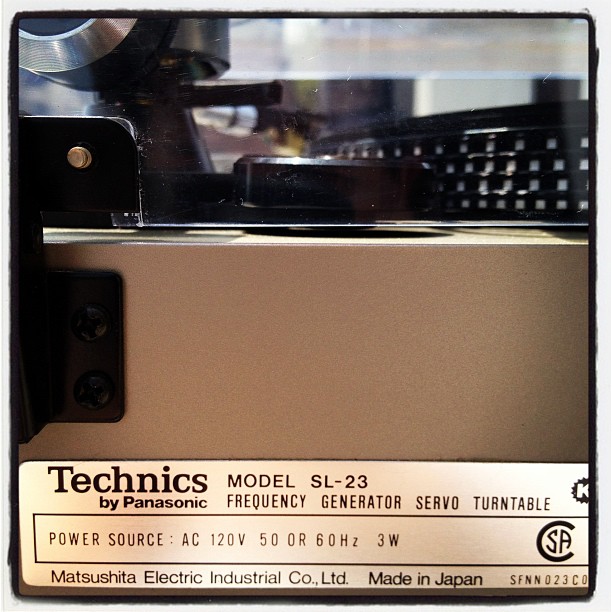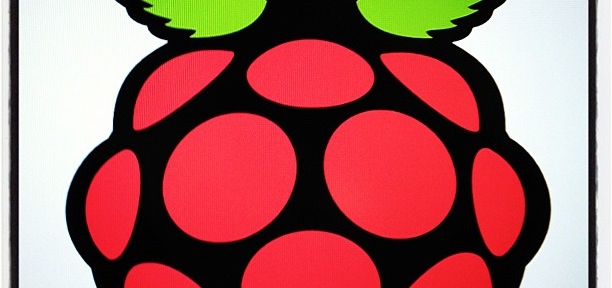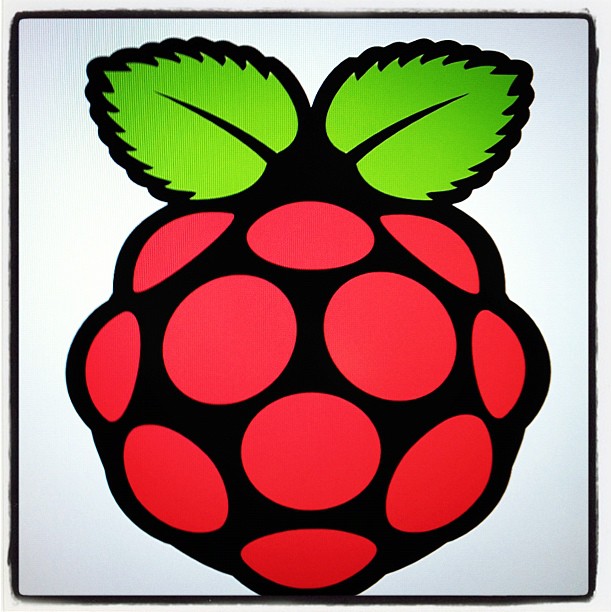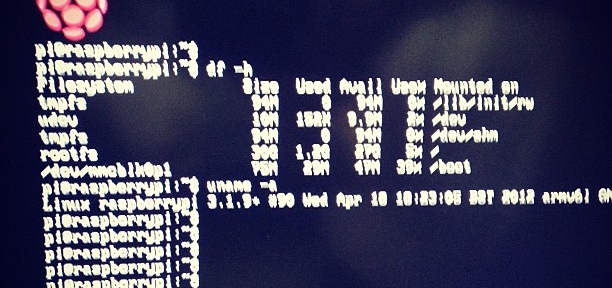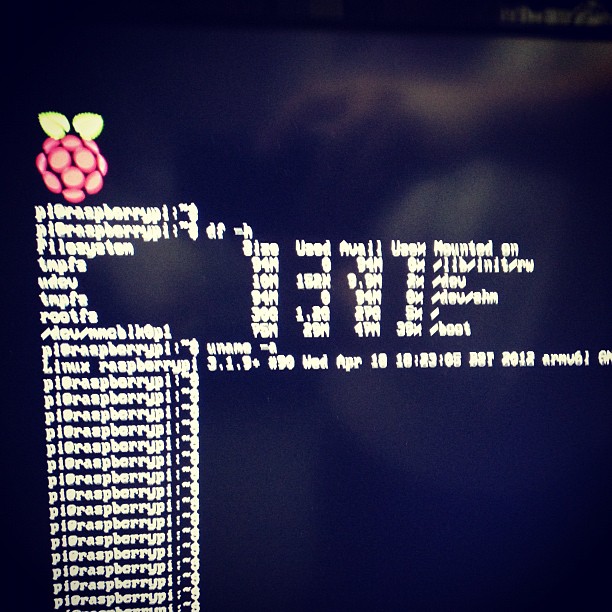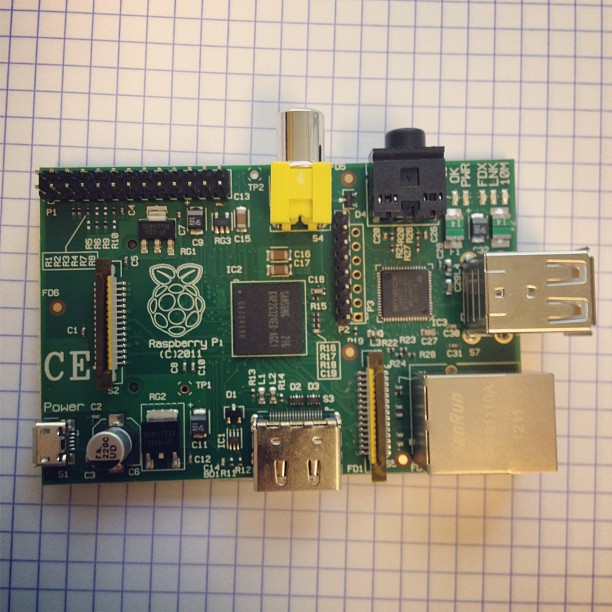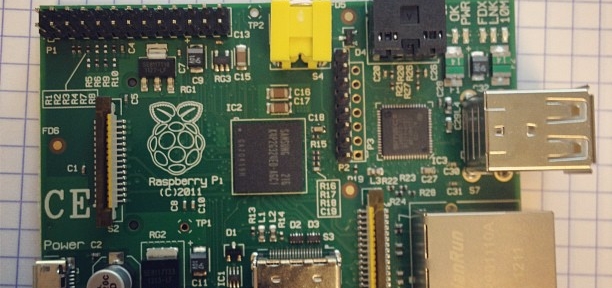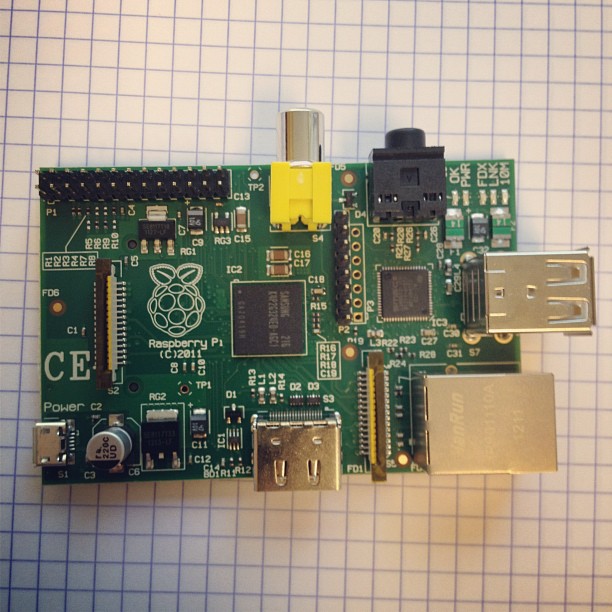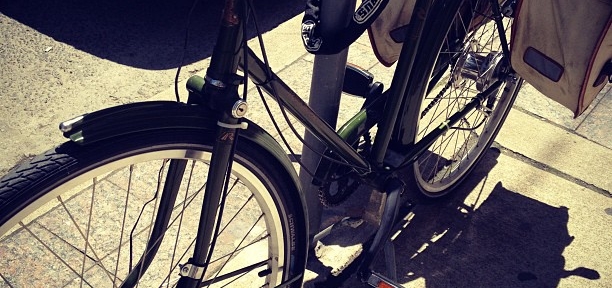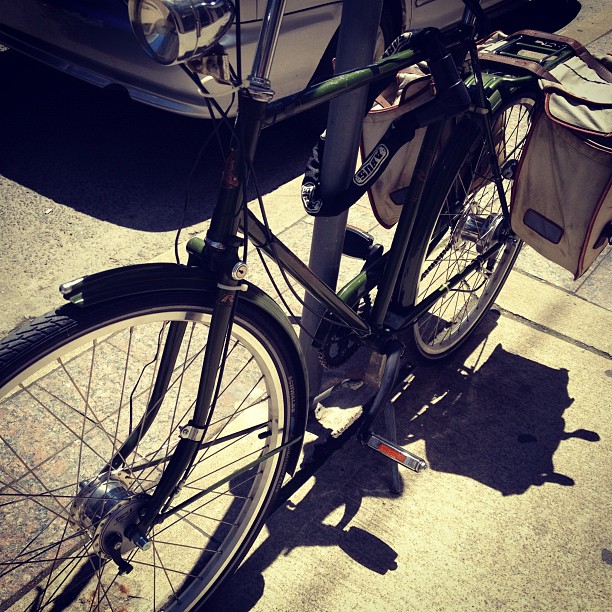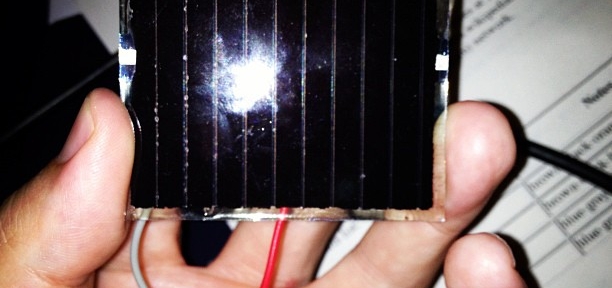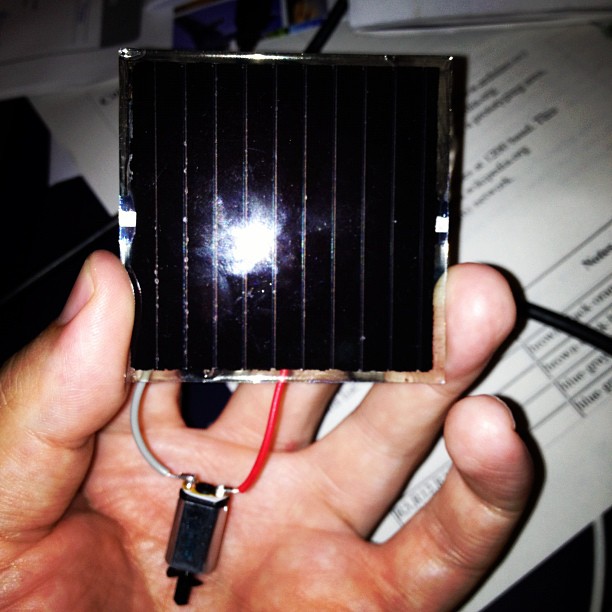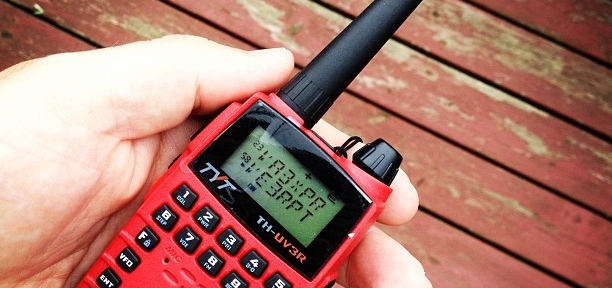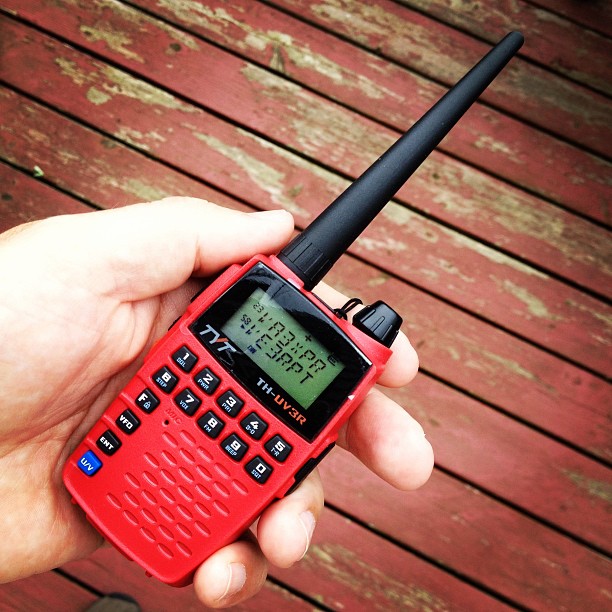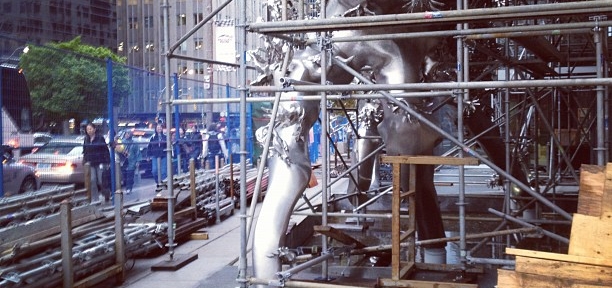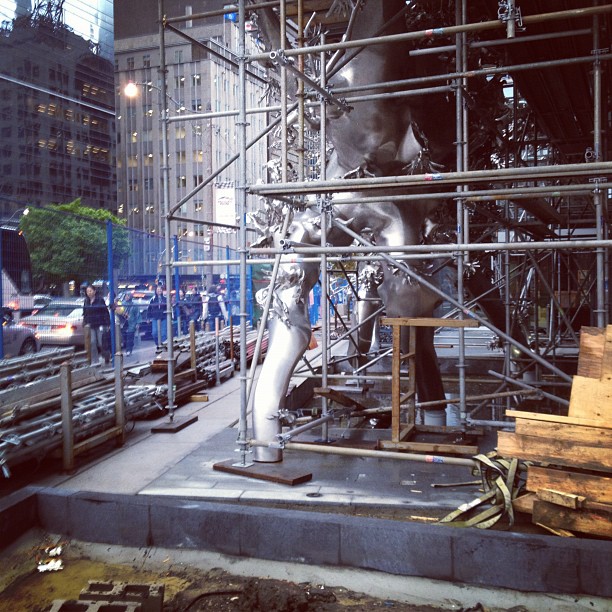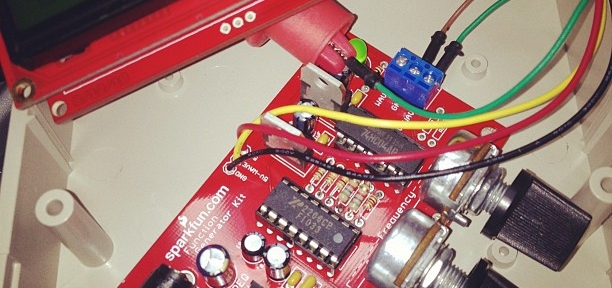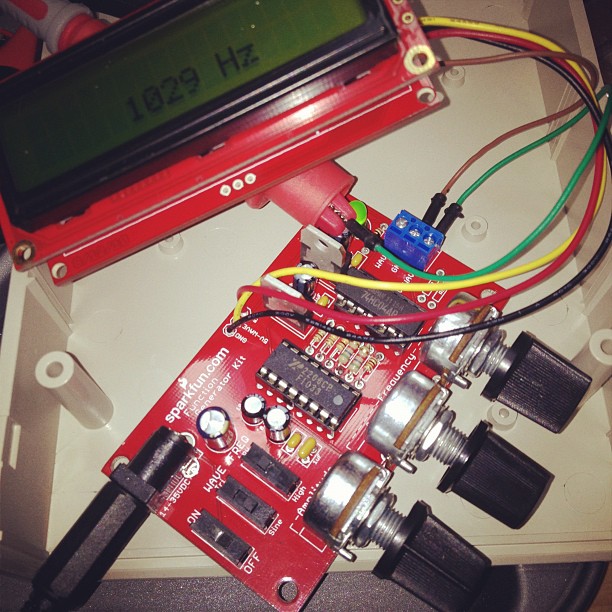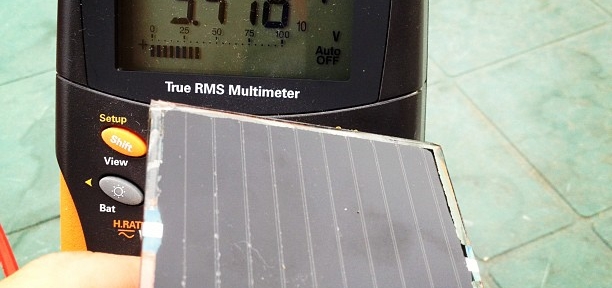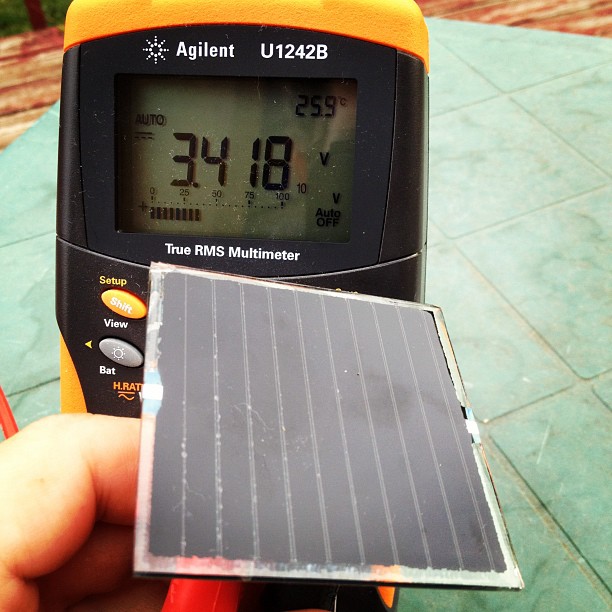Instagram filter used: Hudson
Author: scruss
-
confuzzled: fldigi seems to be interfering with itself …
Fldigi used to work fine, but recent updates may have caused me to drop off the face of the (radio) earth. What it seems to be doing — and I don’t find this at all plausible — is causing interference with its own audio stream when its window has focus, but receiving perfectly when the program window is hidden. As Fldigi is a highly interactive program, this is not much use.Here’s an audio sample showing what I mean: fldigi-psk14070-VA3PID-201206092107z. It’s about 45 seconds long, a sample of the 20m PSK31 band this afternoon, and comprises:- 0-15 seconds: fldigi’s window is in focus. None of the traces in the waterfall resolve to meaningful text.
- 15-30 seconds: I changed focus to another program. The waterfall traces snap into focus; QSOs become readable. The conversation at 2383 Hz goes from line noise to a very clear “… 73 73 Jim and thanks for ans[w]ering the cq …â€
- 30-45 seconds: fldigi’s window is back in focus, and all decoding is cut off.
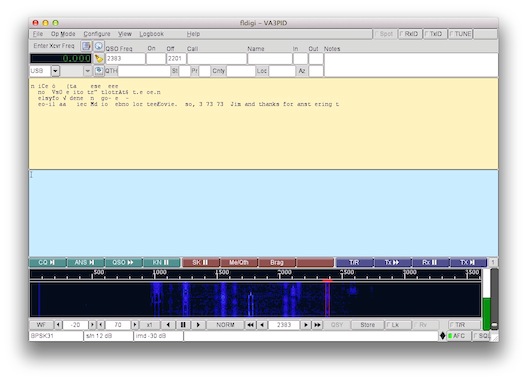 I’m running fldigi 3.21.43-1~kamal~precise from the Ubuntu Amateur Radio Software Updates repo. Hardware is a Thinkpad R51 (a bit old), latest Ubuntu 12.04 LTS, a FT-857D into a Signalink USB, and the audio’s being handled by PortAudio. I’m stumped!
I’m running fldigi 3.21.43-1~kamal~precise from the Ubuntu Amateur Radio Software Updates repo. Hardware is a Thinkpad R51 (a bit old), latest Ubuntu 12.04 LTS, a FT-857D into a Signalink USB, and the audio’s being handled by PortAudio. I’m stumped!Update: It was a volume thing. Linux had decided that I didn’t need my main system volume above 10%, so fldigi was picking up noise only.
-
not overthinking Raspberry Pi enclosures one bit …
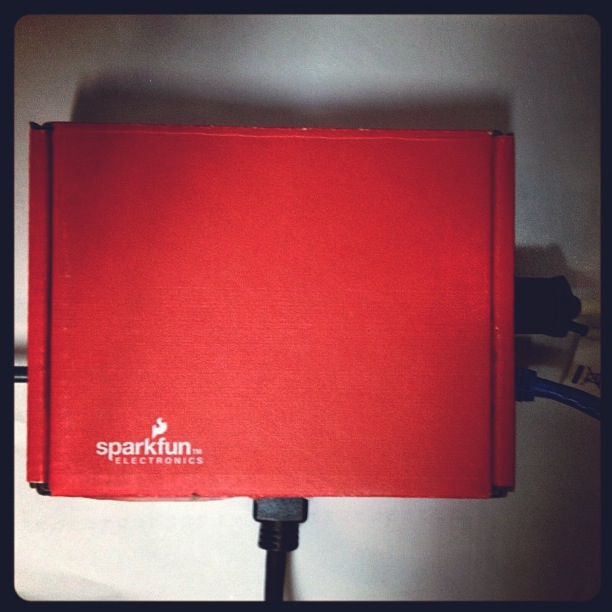 I was half way through marking out the Raspberry Pi‘s shipping box to cut out as an enclosure …
I was half way through marking out the Raspberry Pi‘s shipping box to cut out as an enclosure …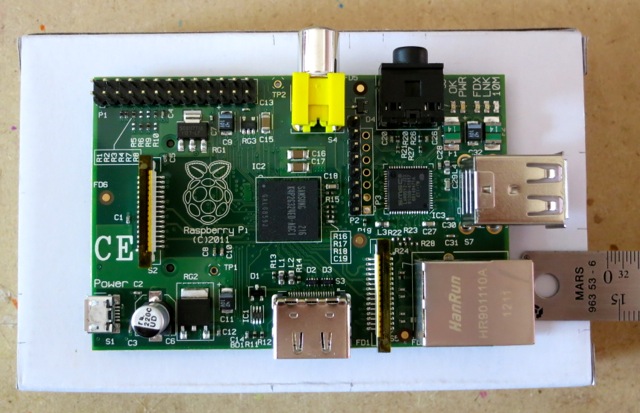
… when I spotted a SparkFun box from an Arduino shield. Aha! Nice thick corrugated card that was reasonably easy to cut with a very sharp knife.

<voice_of_experience>NB: At this point it would have been much wiser to have inserted a memory card before laying this out.</voice_of_experience>

You’re going to have to cut out slots for connectors on the side of the lid. I marked out the path of the lid by closing the box and shading the path that went by the hole I’d cut. Basically, any cardboard you see passing by the hole has to be cut out.
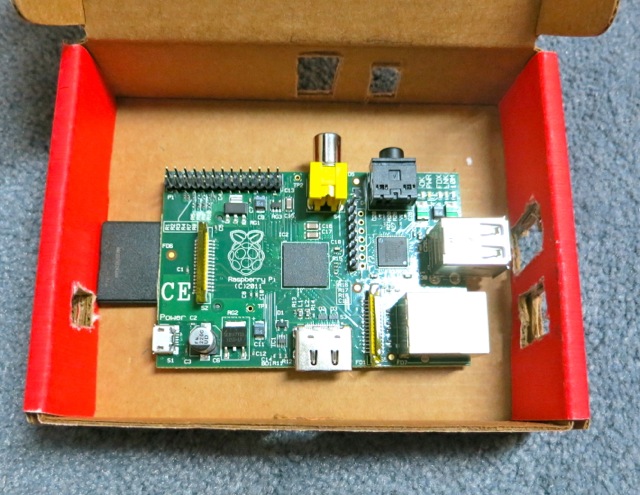
Now with memory card — and you can see I was a bit off.
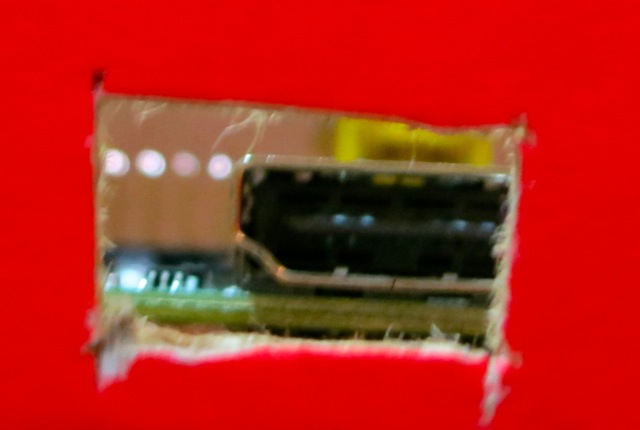
The pain of misalignment, as seen by the HDMI plug. Knives out!
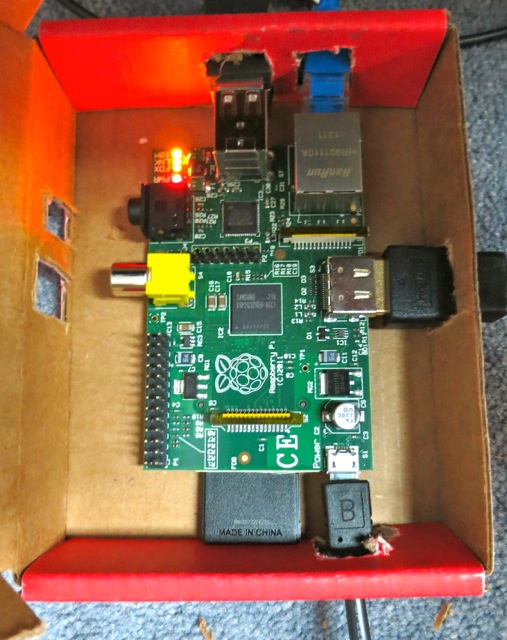
It’s finally all snugged into the box. It’s not going to move about with all the connectors holding it in place.
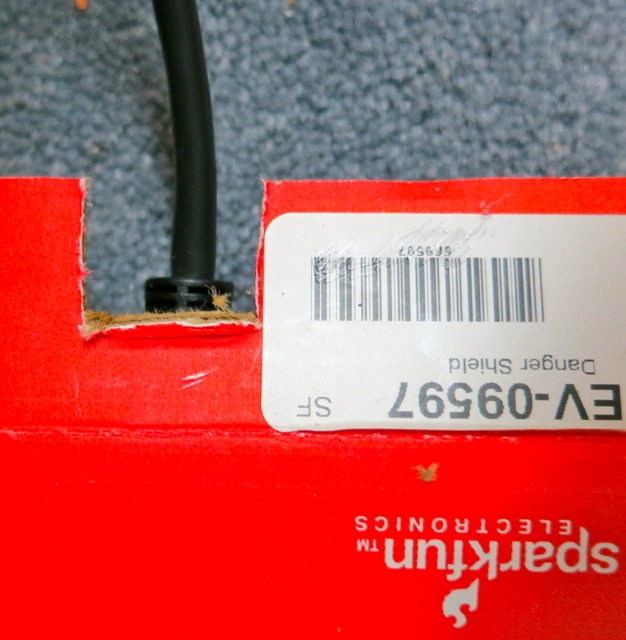
Don’t forget the cutout for the video cable in the box flap. I only caught this at the very last moment.
The Raspberry Pi does run faintly warm in the box. I suspect with the warmth, and all the little cutouts, this will shortly become an A-1 Special spider habitat.
-
knock yourselves out, guys …
I’m not quite sure why anyone would want to use the sort-of Arduino-compatible HamStack — billed as a microcontroller platform especially for amateur radio operators —in preference to developing amateur radio applications for Arduino, but chacun à son thingy. The PIC-based [I’d link to the PIC info page, but Microchip is giving me an internal server error] platform may have a few more IO pins than the stock Arduino, but:
- development tools are expensive
- there’s no cross-platform support
- no direct USB support, either.
Some folks may already have gone to the expense of a PIC-based toolchain, but for beginners, it could be prohibitive. Maybe better to develop and improve radio applications for Arduino.
-
signals
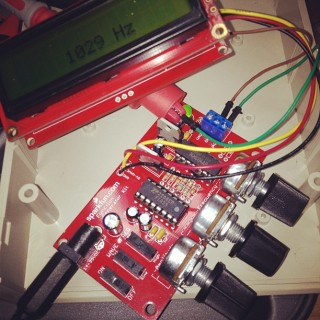 Built a simple Function Generator with Frequency Counter over the last couple of nights. It’s pretty basic — 0-~500kHz, 0-12V, Sine or Triangular waves — but good enough for my test needs. The frequency counter is basically an Arduino repackaged to feed the attached LCD. The counter isn’t super accurate, but is within 1% of what my multimeter says.
Built a simple Function Generator with Frequency Counter over the last couple of nights. It’s pretty basic — 0-~500kHz, 0-12V, Sine or Triangular waves — but good enough for my test needs. The frequency counter is basically an Arduino repackaged to feed the attached LCD. The counter isn’t super accurate, but is within 1% of what my multimeter says.The kit has a fairly high voltage requirement for DC (>= 15V), but this was solved by a quick trip to Active Surplus. $11 bought me a 15V power supply (which delivers around 19V open circuit) and the right kind of barrel jack.
(Talking of neater meters, I didn’t know mine could support the Bluetooth Adaptor reviewed here. Dad’s old Avo couldn’t do that!)

